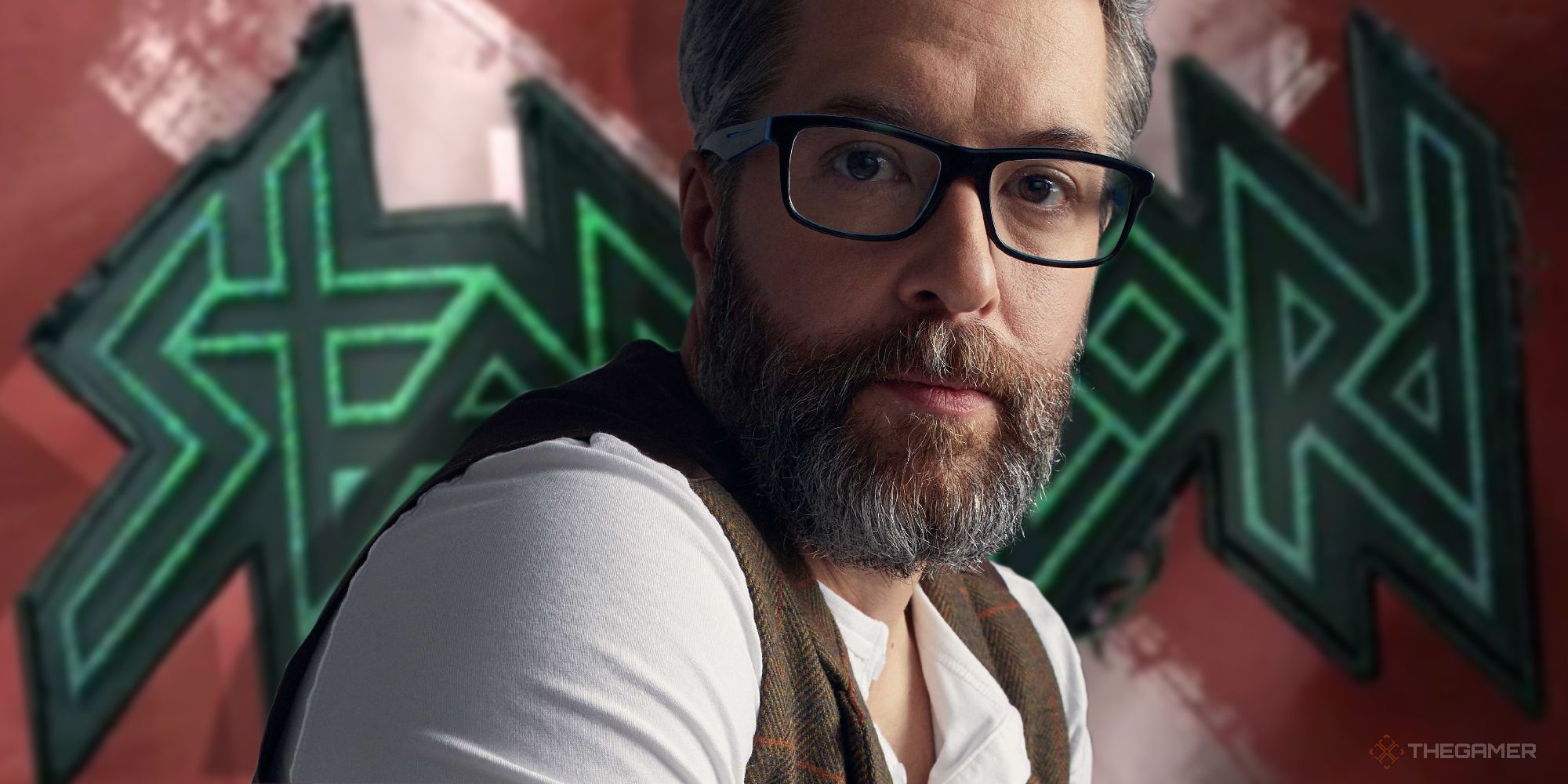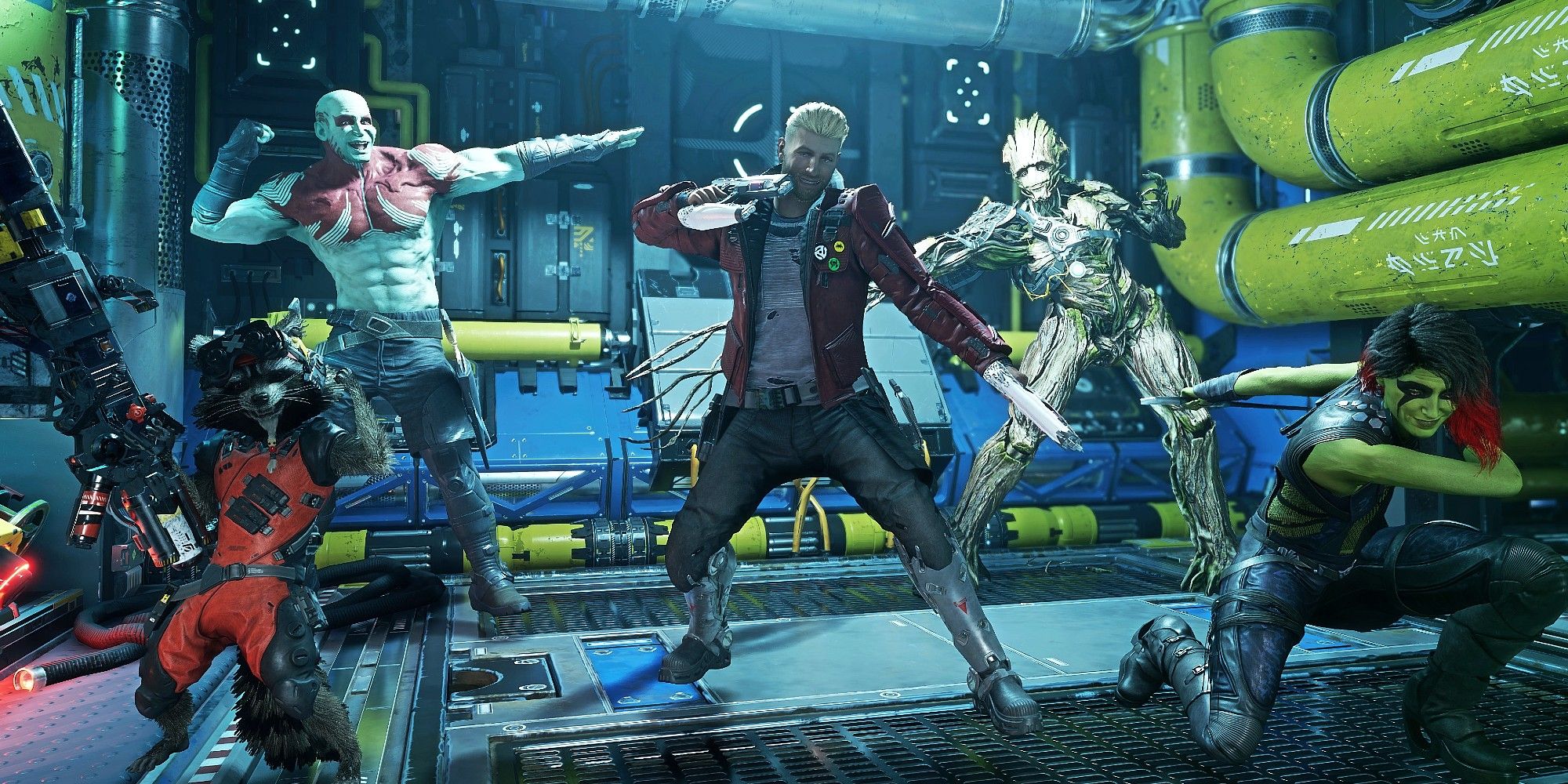*Spoilers follow for Marvel’s Guardians of the Galaxy*
Darryl Purdy, cinematics director of Marvel’s Guardians of the Galaxy, has a favorite scene for every character. For Star-Lord, it’s the second time you enter Nikki’s dream in Chapter 15: Broken Promises. Ko-Rel tells Peter that she’s dead, and it’s his job to help Nikki understand that her mom isn’t coming back. It’s a heart-wrenching sequence that puts Peter in an impossible position to not only console a grieving teenager, but to also convince her to abandon the dream - a fantasy world where she gets to celebrate her mom’s birthday on a loop - less Magus will use her to destroy the entire Galaxy. The stakes couldn’t possibly be higher.
Right in the middle of all this heartbreak, Ko-Rel cracks a joke. When Peter realizes Nikki is adopted, he asks Ko-Rel if that means he isn’t a dad, to which Ko-Rel playfully responds, “Well, you’re not her dad,” implying that Starlord could have any number of offspring spread across the universe. When shooting the scene, neither Purdy nor Judith Baribeau, the actor who plays Ko-Rel, were confident that joke would work.
“It’s such an emotional, heartfelt scene,” Purdy says. “How does that joke fit? It doesn’t feel right to me. Even Judith was kind of like, ‘I’m not sure how to make this work.’” They did a couple takes without the joke, but after consulting with narrative director Mary DeMarle, Purdy found a way to make it fit. “I talked with Judith and I said, ‘Look, let’s try to put that joke in. Don’t play it as a joke, just play it lovingly like it’s your last ‘I love you.’”
Purdy says that little change brought the entire scene to another level. “The way Judith delivered it was so heartfelt and tender,” he says. “I remember you could feel it like a flood of emotion. Everybody in the room was like, ‘Oh my god.’ In that moment you knew, holy crap, the scene is working.”
Purdy calls himself a “character-focused director”, and if you’ve played Marvel’s Guardians of the Galaxy, it’s no surprise to learn how much effort was put into performances, both from the actors who played the characters and the game’s cinematic department. Purdy likens the cinematic department to a movie production company nested within a game studio. “We are game devs, because we’re dealing with all the same things that game devs deal with,” he explains. “But also, we’re kind of creating a 3D animated feature within this video game.”
Purdy has worked on cinematics for many games before. He was the cinematic and animation director on Far Cry 3 and a cinematic performance director for Rise of the Tomb Raider. But Guardians’ complex narrative and ensemble cast was a new challenge for him. “We had to be very meticulous about our planning for the shoots with that many people.” Purdy explains. “[We] tried to balance [it] so everybody got enough screen time so you felt like they were all part of the story even though you’re only playing Peter. You still have to give every character their moment to shine.”
The studio utilized performance capture to record not just the actors’ movements, but their facial expressions and voices too. For Purdy, directing scenes for the game was not unlike directing a live-action film with a large cast. “During performance capture you have the five Guardians and sometimes six or seven characters all in the room together,” Purdy says. “They’re all acting off of each other, they’re seeing the visual cues, the body language, and that creates a really organic performance.”
Performance capture wasn’t only used for cutscenes, of which there are about five and half hours’ worth throughout the game. The actors also did performance capture for all of the banter you hear between the characters too. “I found that made the in-game banter that much more organic,” he says. “You feel the human connection between them because they’re in the same room and reacting to each other. Whether you notice it or not, there’s a certain physicality in their voices that feels natural because they’re not constrained to a mic.”
Purdy also wanted to leave room for experimentation and improvisation on the set. “One of the things I believe in my core is that everybody should go into cinematic storytelling with an idea of collaboration,” he says. “If you’ve done your job and you’ve planned and you have a clear idea of what you think is important, be ready to also throw some of that out the window.” Purdy believes that by giving others your creative intention, they can bring things to the story you never would have imagined. He says his job as a director is to first make sure that the story beats and structure of the narrative are covered, but then to “make sure that the actors feel like they’re in a safe place where they can really dive into these characters and take risks and chances.
“If you give them space to put their own stamp on it, I’ve never seen it fail in the back end. Once they start to really feel like this character is them, they’re making better and better decisions when they take a chance. That’s when you really find magic.”
This is a small piece of a long-form interview Darryl Purdy did for TheGamer Podcast. To listen to the full, uncut version, check out episode 14 of TheGamer Podcast this week, available now on Spotify, Apple Podcasts, Google Podcasts, or wherever you normally listen to podcasts. Episode 14 also includes a roundtable discussion of Marvel’s Guardians of the Galaxy with TheGamer’s editorial team.


